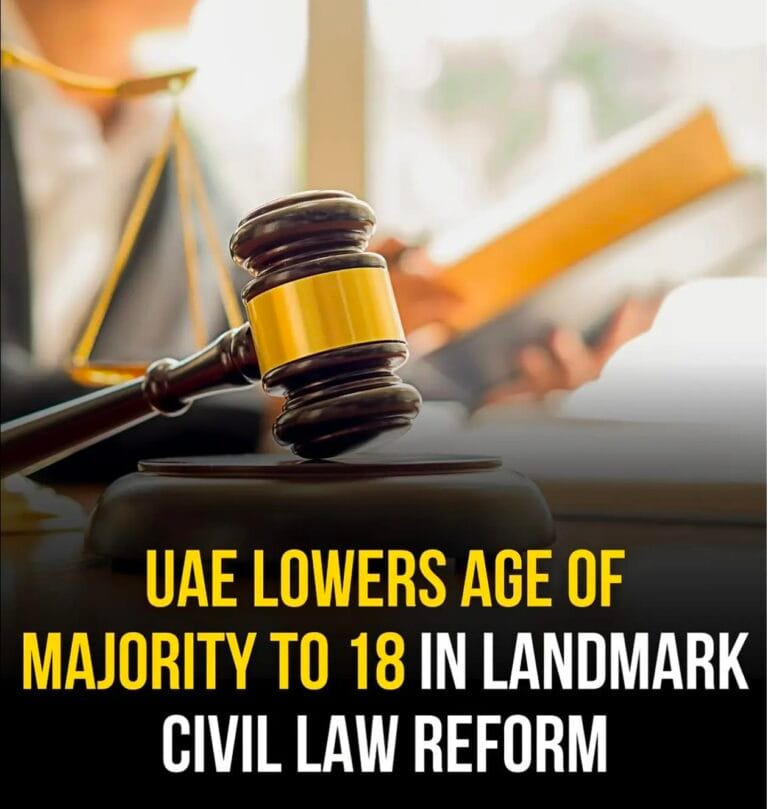
In a significant development for government employees in Sharjah, His Highness Sheikh Dr. Sultan bin Mohammed Al Qasimi, Supreme Council Member and Ruler of Sharjah, has approved a comprehensive new salary scale for public sector jobs. The announcement, made on Thursday, April 17, 2025, introduces two new job grades and establishes standardized tenure periods across all employment levels in the Sharjah government sector.
This reform aims to enhance job security and create clearer career advancement pathways for Emirati citizens working in government positions. The changes reflect Sharjah’s ongoing commitment to developing its public sector workforce and recognizing employee contributions through structured progression opportunities.
Table of Contents
Key Changes in the New Salary Scale
The newly approved salary structure includes several important modifications that will affect thousands of government employees across Sharjah:
1. Introduction of New Job Grades
The reform introduces two new prestigious job grades:
- ‘Special A’ grade
- ‘Special B’ grade
These additional grades create new advancement opportunities for government employees who previously may have reached career plateaus at the first grade level.
2. Standardized Tenure Requirements
A consistent four-year tenure requirement has been established for each job grade across all employment levels. This standardization creates:
- Predictable promotion timeframes
- Clearer career planning opportunities
- More transparent advancement criteria
3. Special Provisions for Emirati Engineers
The Ruler of Sharjah has also approved a separate revised salary scale specifically for Emirati engineers working in government positions. This specialized scale includes:
- A new ‘Special’ grade for engineering professionals
- Updates to existing engineering job titles
- Four-year duration requirements at each job level
Implementation Timeline and Process
According to Abdullah Ibrahim Al Zaabi, head of the Human Resources Department in Sharjah, the implementation of these changes will begin immediately after coordination with relevant departments. The Human Resources Department will work with various government entities to ensure a smooth transition to the new salary structure.
Government employees will be notified about how these changes affect their specific positions and career trajectories as the implementation progresses. While exact implementation dates for different departments may vary, the overall reform is expected to be fully in place by the end of 2025.
Impact on Government Employees
The new salary scale is expected to have several positive effects on Sharjah’s government workforce:
Enhanced Career Mobility
Prior to this reform, employees who reached the first grade often faced limited opportunities for further advancement, sometimes waiting many years for promotion possibilities. With the introduction of the new special grades beyond the first grade, ambitious and high-performing employees now have additional career advancement pathways.
Improved Job Satisfaction and Retention
The clearer promotion structures and additional advancement opportunities are designed to improve overall job satisfaction among government employees. This, in turn, is likely to enhance employee retention rates and reduce turnover in critical government positions.
Motivation for Higher Performance
Abdullah Ibrahim Al Zaabi emphasized that these new grades are intended to serve as an incentive for government employees to demonstrate increased effort and dedication in their roles. The reformed structure creates tangible rewards for outstanding performance and commitment.
UAE’s Broader Public Sector Development
Sharjah’s salary scale reform aligns with broader initiatives across the UAE to enhance public sector employment and create more attractive career opportunities for UAE nationals. This reform reflects the UAE’s National Employment Strategy which emphasizes developing local talent and creating sustainable government careers.
Similar reforms have been implemented in other emirates in recent years, including:
- Abu Dhabi’s civil service reforms in 2023
- Dubai’s government employment restructuring in 2024
Learn more about UAE labor reforms and their impact on employees
Historical Context of Government Employment in Sharjah
This latest reform continues Sharjah’s tradition of progressive public sector employment policies. Sharjah has historically placed significant emphasis on creating stable and rewarding government careers for its citizens.
In recent years, Sharjah has implemented several initiatives to strengthen its public sector workforce:
- 2021: Introduction of performance-based incentive systems
- 2023: Implementation of specialized training programs for government employees
- 2024: Launch of the Sharjah Government Leadership Development Program
These ongoing improvements reflect Sharjah’s commitment to developing a world-class government workforce capable of effectively serving its population and contributing to the emirate’s continued development.
Expert Perspectives
Employment specialists view the new salary scale as a positive development for both employees and the government itself.
Dr. Hassan Al Najjar, Professor of Public Administration at the University of Sharjah, notes: “The introduction of these new grades addresses a long-standing challenge in government employment structures. By creating additional advancement opportunities beyond the first grade, this reform helps retain experienced talent that might otherwise leave for the private sector after reaching career plateaus.”
HR consultant Sara Al Marzouqi adds: “The standardized four-year tenure requirement brings predictability to career planning, which is highly valued by employees. This clarity contributes significantly to job satisfaction and helps government entities with their long-term human resource planning.”
Frequently Asked Questions about Sharjah’s New Government Salary Scale
Who is eligible for the new government salary scale in Sharjah?
The new salary scale applies to Emirati citizens employed within Sharjah government departments and entities. Different provisions apply to general government positions versus specialized engineering roles.
What are the new job grades introduced in the salary scale?
The reform introduces two new grades above the first grade: ‘Special A’ and ‘Special B’ for general government positions. For engineering positions, a new ‘Special’ grade has been introduced.
How long must employees serve in each job grade?
Under the new system, employees must complete a standard four-year tenure in each job grade before becoming eligible for promotion to the next level. This applies across all employment levels and categories.
When will the new salary scale take effect?
Implementation will begin immediately following the announcement, though the exact timeline may vary by department. The Human Resources Department will coordinate with relevant authorities to manage the transition.
Will the new salary scale affect existing salaries?
The announcement primarily addresses grade structures and promotion pathways rather than immediate salary adjustments. However, promotions to the newly created grades would typically involve corresponding salary increases based on Sharjah government compensation policies.
What documentation will employees need to provide for reclassification?
Employees will likely need to submit their employment history, performance evaluations, and qualification certificates to determine proper placement within the new grade structure. The Human Resources Department will provide specific guidance on required documentation.
How does this change affect performance evaluations?
While the announcement doesn’t specifically address performance evaluation methods, the emphasis on rewarding effort and dedication suggests that performance assessments will play an important role in determining advancement through the new grade structure.
Are there special provisions for specific government sectors?
The announcement highlights special considerations for engineering positions, suggesting that specialized technical roles receive tailored grade structures. Other specialized fields may have similar profession-specific provisions within the broader framework.
How does this compare to government employment structures in other emirates?
The introduction of ‘Special’ grades above the traditional first grade represents an innovative approach to the common challenge of career plateaus in government service. While specific structures vary, all emirates have been enhancing government employment frameworks in recent years.
Where can government employees get more information about how this affects them personally?
Employees should contact their department’s human resources office for specific information about how the new grade structure affects their position, promotion timeline, and career path.
Conclusion
The approval of the new salary scale and job grades for Sharjah government employees represents a significant development in public sector employment in the emirate. By introducing new advancement opportunities and standardizing tenure requirements, this reform addresses key challenges in government career structures while creating stronger incentives for performance and dedication.
For Emirati citizens employed in the Sharjah government, these changes promise clearer career pathways and greater long-term job security. For the government itself, the reforms are likely to enhance workforce development, improve retention of experienced talent, and ultimately strengthen the quality of public services provided to Sharjah residents.
As implementation progresses throughout 2025, both current and prospective government employees will benefit from a more structured and rewarding career framework that recognizes their contributions to Sharjah’s continued development.
Disclaimer: This article is based on publicly available information and is provided for general informational purposes only. For specific advice regarding government employment regulations or individual employment situations, please consult with qualified professionals specialized in UAE labor law.





